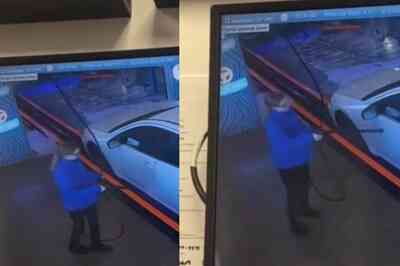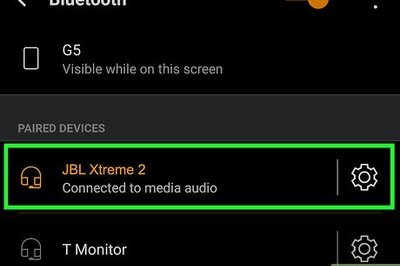
views
New Delhi: The spillover effects from Singur and Nandigram could hit West Bengal's ruling Left Front, which faces its toughest challenge in the assembly elections whose outcome could have a national impact, say political observers.
According to analyst Mahesh Rangarajan, Left parties laid a strong rural foundation in their initial years after taking power in 1977 by carrying out largescale land reforms and devolving power to the panchayats (rural bodies). The initial hard work helped the Left in subsequent years, but the ongoing polls could be different with the Mamata Banerjee-led Trinamool Congress emerging as "an agent of change", he said.
Chief Minister Buddhadeb Bhattacharjee's efforts since 2000 to rope in big industries came unstuck following the Singur and Nandigram protests over land takeover. This led to loss of credibility for the government. "Sections that had earlier supported the Left turned against them," Rangarajan told IANS, referring to the results of the 2009 Lok Sabha polls and the civic elections last year.
While 14 people lost their lives March 2007 in police firing in East Midnapore's Nandigram during a protest against land acquisition for an economic zone, a sustained Trinamool-led farmer agitation in Singur in Hooghly forced Tata Motors to shift its small car Nano factory to Gujarat.
Centre for Media Studies chairperson N. Bhaskara Rao said the Left had a better understanding than the Congress of people's issues when they came to power in 1977. "They gave impetus to land reforms and distribution of wealth. These programmes touched a large section of people. They had better organisation at the grassroots," he said.
Rao said the Left Front used organisational strategies to gain support and retain control but did not reorient these strategies to the changing situation. He said Nandigram and Singur were the turning points in fostering anti-Left sentiment. But the election was a "touch and go" affair.
Shakeel Ahmed, the Congress in-charge of West Bengal, alleged that the Left Front had won so long by resorting to rigging and terror tactics and prophesied that the 2011 polls "will mark the beginning of its end in the national polity". The Congress is contesting the polls in alliance with the Trinamool.
Bharatiya Janata Party (BJP) spokesperson Nirmala Sitharaman said there was a mood for change as the state has reached "saturation point".
Nilotpal Basu of the Communist Party of India-Marxist (CPM), however, disagreed. According to him, the CPM-led coalition has survived seven terms because its rule has benefited an overwhelming majority, particularly the poor.
"The government attained success in agrarian reforms, land distribution and recording of land of sharecroppers. Majority of beneficiaries are poor," he said. He accused the Trinamool of confusing the people and stopping industrialisation. He claimed that the CPM did some introspection on its recent poll defeats and identified the factors that went wrong. As a result, the Left has regained much of the lost support.
The 10-party Left Front has CPM, Communist Party of India, Revolutionary Socialist Party (RSP) and Forward Bloc as its major constituents.




















Comments
0 comment